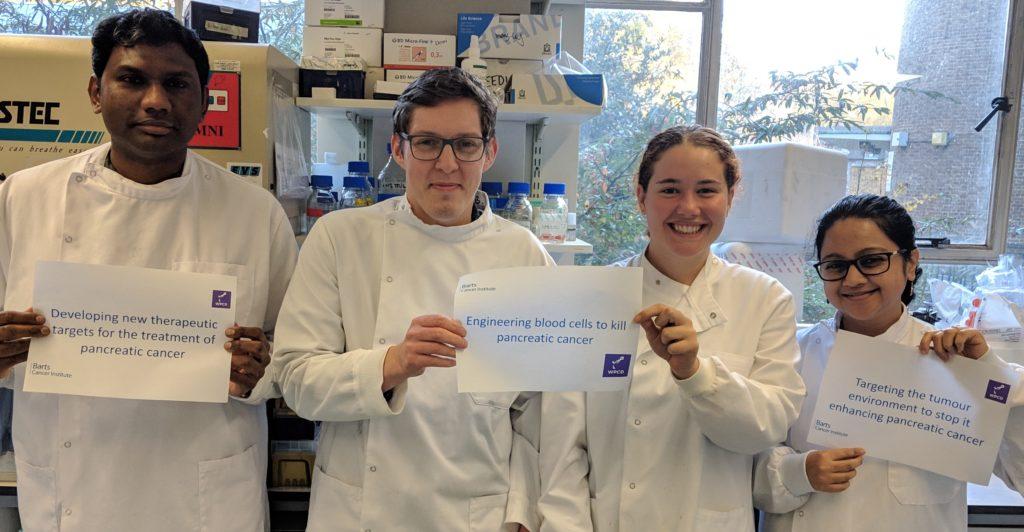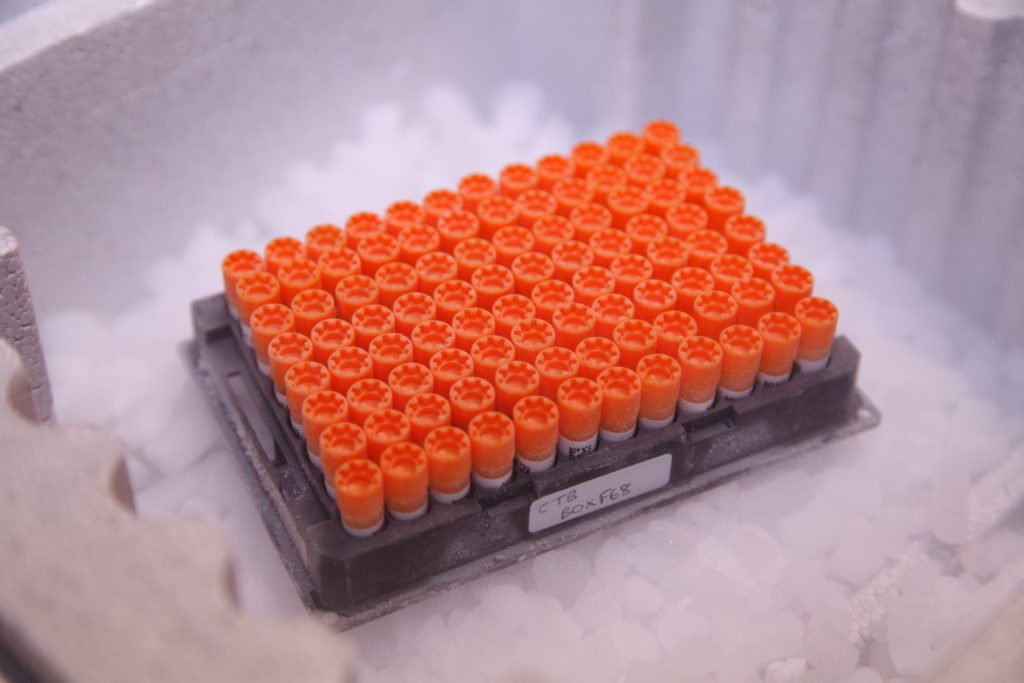Pancreatic Cancer Awareness Month 2018
November marks Pancreatic Cancer Awareness Month. Pancreatic cancer is diagnosed in over 9,900 people in the UK annually. Sadly, 90% of the individuals affected lose their lives each year, and less than 1% of patients survive the disease for 10 or more years. In the early stages of the disease, pancreatic cancer often does not show any symptoms, making timely diagnosis and intervention difficult.
Supporting vital research

Despite the high mortality rates, pancreatic cancer research has been considerably underfunded when compared with many other cancer types. In the last decade, significant efforts have been made to raise awareness of pancreatic cancer, resulting in increased funding essential to accelerating research in this area.
Pancreatic cancer is a Cancer Research UK (CRUK) cancer of unmet need and a core area of focus here at the BCI, and our work is generously supported by a number of charities and funding bodies, including CRUK, Pancreatic Cancer Research Fund, Pancreatic Cancer UK and the Medical Research Council (MRC). Our researchers focus on different areas of pancreatic cancer research, with the ultimate aim of identifying new treatments to help patients.
Pancreatic Cancer UK Grand Challenge
Pancreatic Cancer UK has recently awarded their largest ever research fund, the Pancreatic Cancer UK Grand Challenge, to a team of researchers at the BCI and King’s College, London. The award will fund research for the development of CAR-T cell therapy, a type of immunotherapy, for pancreatic cancer.
Chris Macdonald, Head of Research at Pancreatic Cancer UK said: “Pancreatic cancer is a complex disease so we are pleased to be funding one of the best teams in the UK, with expertise in overcoming the challenges of the tumour microenvironment, to develop new CAR-T cell immunotherapy treatments. CAR-T cell immunotherapy has already shown positive results in other cancers and the Grand Challenge project builds on a previous Pancreatic Cancer UK grant awarded to Barts which showed promising early data. We hope that this completely new approach to treating pancreatic cancer will have similar results.”
Read more about the PCUK Grand Challenge here.
Pancreatic Cancer Research Fund Tissue Bank- an invaluable resource
 As well as funding research projects at BCI worth over £3M to tackle pancreatic cancer from a wide range of approaches, Pancreatic Cancer Research Fund (PCRF) launched the world’s first national pancreas tissue bank in 2015 - located at BCI.
As well as funding research projects at BCI worth over £3M to tackle pancreatic cancer from a wide range of approaches, Pancreatic Cancer Research Fund (PCRF) launched the world’s first national pancreas tissue bank in 2015 - located at BCI.
In order to conduct research to better understand pancreatic cancer, researchers need access to high-quality tissue samples. The £2M PCRF Tissue Bank stores samples of human tissue, blood, saliva and urine, and each sample is catalogued with detailed information about the tumour type, grade and donor’s clinical history. Researchers can access these samples to conduct experiments, and all experimental findings will be inputted back into the tissue bank database, which is available to pancreatic cancer researchers globally. This wealth of data will support further research and drive new discoveries.
PCRF’s founder and chief executive, Maggie Blanks, says: “Our intention has always been to fund the very best research into pancreatic cancer and the concentration of world class expertise at BCI is the reason its researchers feature prominently in our grant awards.”
Pancreatic cancer has the lowest survival rate of all cancer types, and this figure has seen barely any improvement over the last 40 years. It is therefore vital to identify new and effective therapies that can help those affected by pancreatic cancer and ways to detect the disease in its earliest stages. To find out how you can help to raise awareness and support research this Pancreatic Cancer Awareness Month, visit the Pancreatic Cancer UK and PCRF websites.
- Thank you to our funders for your continued support of our pancreatic cancer research -
Category: General News

No comments yet